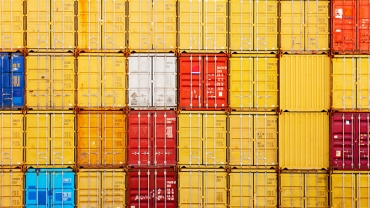
Amendments to the Customs Code of Ukraine. What does it mean for business?
25/10/24
The President of Ukraine has immediately signed two Laws amending the Customs Code of Ukraine. What you need to know.
On October 17, the President of Ukraine signed the Laws of Ukraine "On Amendments to the Customs Code of Ukraine regarding the establishment of peculiarities of service in customs authorities and attestation of officials of customs authorities" dated September 17, 2024, No. 3977-IX (hereinafter referred to as Law No. 3977-IX) and "On Amendments to the Customs Code of Ukraine regarding the implementation of certain provisions of the Customs Code of the European Union" dated August 22, 2024, No. 3926-IX (hereinafter referred to as Law No. 3926-IX).
І. Customs reform and new standards of service in Law No. 3977-IX
The law introduces changes to the customs service procedures to enhance efficiency and transparency. These changes include significant adjustments to the procedures for selection, management and evaluation of theState Customs Service of Ukraine.Key provisions are as follows:
competitive selection for the position of the Head of the State Customs Service involving international experts;
abolition of the requirement for the Ministry of Finance’s approval for appointing heads of middle management of the State Customs Service, including department directors and customs heads;
introduction an annual independent audit to assess the effectiveness of customs authorities;
streamlining the mandatory attestation procedures of customs officials, determining their grounds, frequency and consequences;
raising the level of financial security of the State Customs Service employees to boost motivation and ensure a high professional standart.
The law will enter into force on October 31, 2024, except for the issues of remuneration (on January 1, 2025) and taking samples of goods (on April 19, 2025).
ІІ. Evolution of the customs system: key changes in Law No. 3926-ІХ
The Law introduces several significant changes to the procedures and operations of customs regimes, updated approaches to declaration, post-clearance audit and the protection of intellectual property rights. Key changes are as follows:
Authorization for Customs Regimes: goods placed under the customs regimes such as import (in terms of the end-use procedure), temporary admission, inward processing, outward processing may be carried out only with an authorization, which is granted upon application by the enterprise or based on a customs declaration;
Replacement of Permits: existing permits for enterprises that operate customs warehouses, temporary storage warehouses or act as customs representatives will be replaced with authorization to operate these facilities or to conduct customs brokerage activities, respectively;
Assessment of "Sustainable Financial Standing" for AEO Status: a new approach to assessing the "Sustainable financial standing" criterion for obtaining Authorized Economic Operator (AEO) status has been introduced. Enterprises must demonstrate sufficient financial standing to fulfill their obligations, taking into account the type and volume of commercial activity, as well as the absence of negative net assets, unless they can be secured;
Introduction of "Customs Representation": the institution of "customs representation" has been introduced, allowing an authorized person to perform the necessary actions and customs formalities determined by Ukrainian customs legislation. This includes the separation of direct and indirect customs representation.
Local clearance procedure: the procedure for declaring goods at an authorized facility under the "local clearance procedure" has been updated, particularly regarding the declaration of goods by a direct and indirect customs representatives;
Updated Customs Audit Procedures: the procedures for conducting documentary on-site (scheduled or unscheduled) and off-site inspections have been updated.
Post-Clearance Audit Details: the subject of post-clearance audit has been detailed.This includes a pre-audit analysis of the correctness, accuracy, completeness and reliability of information in customs declarations and related documents as well as verification of the existence, authenticity, correctness and validity of any supporting document, including checking the company's accounting records and other documentation related to transactions with the relevant goods;
Intellectual Property Rights Infringement: the possibilities of proving signs of intellectual property rights infringement have been expanded. The conclusion of the right holder on the existence of intellectual property rights infringement along with the expert's conclusion is now recognized. Additionally, the right holder is provided the right to participate in proceedings in cases of customs rules violations.
Most of the changes will come into force on April 19, 2025, but some provisions have already entered into force as of October 19, 2024, in particular, regarding the extension of the advantage of the AEO status in terms of priority passage through the customs border using information and communication systems that regulate the order of arrival to the state border and/or its crossing (eCherha).
Contact us


Vita Miroshnychenko
Director, Head of Customs and International Trade practice, PwC in Ukraine
Tel: +380 44 354 0404

Pavlo Herasymiuk
Manager, Customs and International Trade, PwC in Ukraine
Tel: +380 44 354 0404









